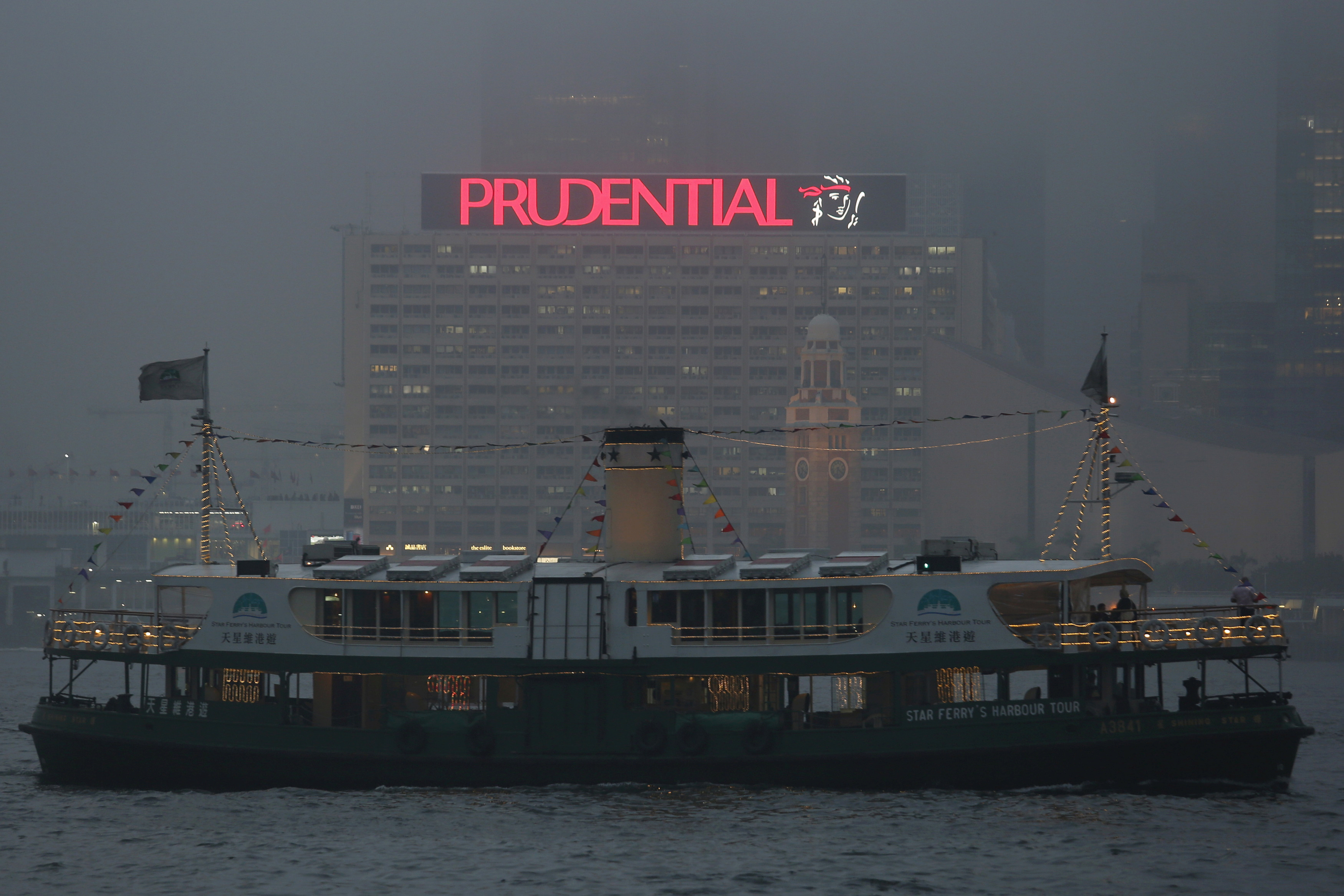[ad_1]

A ferry sails past an advertisement of Prudential Assurance under foggy weather at the Victoria Harbour in Hong Kong, China March 9, 2016. REUTERS/Bobby Yip/File Photo Acquire Licensing Rights
HONG KONG, Aug 31 (Reuters Breakingviews) – Prudential’s (PRU.L), new CEO has inherited an old problem. Though boss Anil Wadhwani delivered a solid set of results on Wednesday, the insurer’s valuation lags stubbornly behind rival AIA (1299.HK). The pressure is on to prove that Prudential’s decision to shed its British and U.S. assets justifies the upheaval.
It’s more than a year since the Pru – not to be confused with the U.S. group of the same name – transformed itself. After chopping off its historic UK roots in 2019 and listing U.S.-based Jackson National Life two years later, Greater China is the company’s main market. Last year the region brought in 42% of the group’s new business profit – the metric insurers use to measure the value of new policies in today’s money. Wadhwani’s decision to lead the $35 billion company from Hong Kong underscores its focus.
The former Manulife (MFC.TO) executive says the streamlined Prudential hasn’t yet realised its full potential, and investors agree. Its Hong Kong and London-listed stock trades at just over 13 times expected earnings for 2023, per Visible Alpha. Larger rival AIA, listed in Hong Kong, is valued at around 18 times. Prudential’s market value is also less than its shareholders’ equity as measured on a European embedded value basis, while investors reward AIA with a premium to its equivalent balance sheet measure. Nor has the rejig closed the gap: Prudential’s Hong Kong shares are down roughly 40% since it started its breakup in 2018; over the same period, AIA stock is up 5%.
Wadhwani’s strategy is to fine-tune the engine rather than reinvent the wheel. He will aim to improve customer experience, distribution and the health business by investing around $1 billion in new technology and other resources, and has promised to lift new business profit at a compound rate of 15% to 20% between 2022 and 2027. But a greater focus on China has shifted from a trump card to a wild card. The group’s new business profit in the mainland slipped 16% to $171 million in the first half as Pru withdrew some products from the market.
True, China’s ageing population should ensure robust long-term demand for health and life insurance. Savings products also appeal to citizens keen to diversify away from volatile stocks and property. But a slowing domestic economy undermines that opportunity. Meanwhile, geopolitical risks and Beijing’s erratic policy swings have made international investors wary of China exposure.
The man from the Pru has his work cut out.
Follow @KatrinaHamlin on X
CONTEXT NEWS
Insurer Prudential on Aug. 30 reported new business profit of $1.5 billion in the first six months of 2023, up 36% from the same period a year earlier. New business profit in mainland China slipped 16% to $171 million.
The company’s annualised contractual service margin, a measure of its core business introduced as part of the insurance industry’s new IFRS 17 accounting standards, grew 8%.
Prudential also outlined its new strategy. New CEO Anil Wadhwani, who joined in February, said the group will accelerate value creation by improving its operational and financial discipline, aiming to grow new business profit at a compound annual growth rate of 15% to 20% between 2022 and 2027. The group will invest around $1 billion to achieve his goals, mostly between 2023 and 2025. Investments will include upgrading technology for its agents and bancassurance systems.
Prudential’s London-listed shares closed up 1.5% at 10 pounds on Aug. 30.
Editing by Peter Thal Larsen and Thomas Shum
Our Standards: The Thomson Reuters Trust Principles.
Opinions expressed are those of the author. They do not reflect the views of Reuters News, which, under the Trust Principles, is committed to integrity, independence, and freedom from bias.
[ad_2]
Source link
